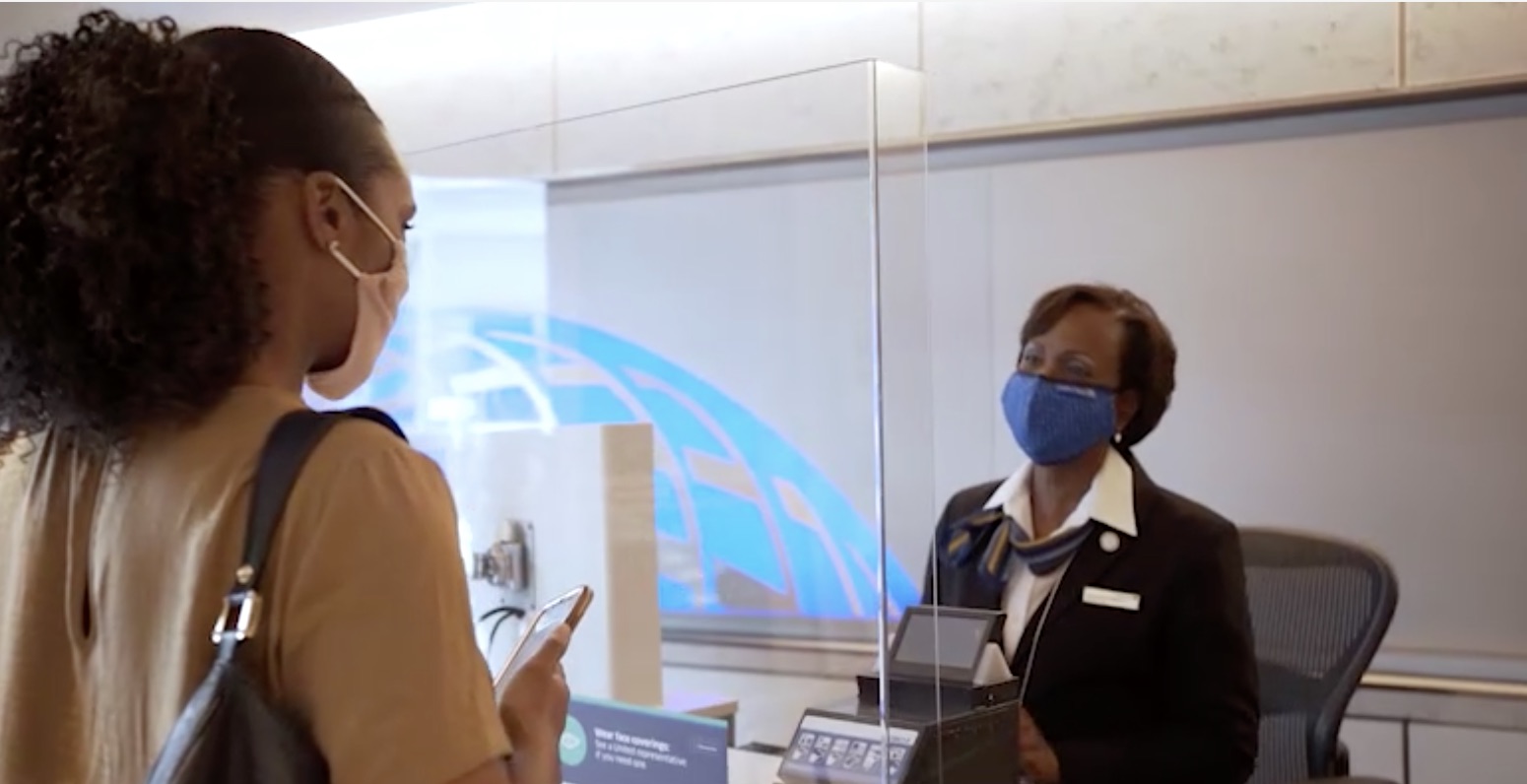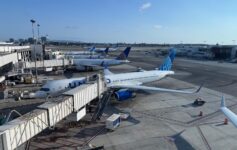
Behind the scenes of every United Airlines delay is a potential internal battle between employees. Determining which “delay code” should be assigned means determining which employee or employee group will take the “blame” for a delay. But now United plans to jettison delay codes altogether, hoping that it will focus employees on looking out for customers rather than looking over their shoulders.
United Airlines Will Eliminate Delay Codes
Let’s say a full flight is boarding and, as usual, overhead bin space runs out. Currently, if flight attendants let the bag onboard and the flight is delayed due to a gate agent checking bags, the delay is assigned to the flight attendants. If flight attendants block the carry-on bags from coming onboard and a delay still results due to too many carry-on bags, gate agents take the blame for the delay.
The consequences are real: employees must account for departure delays and work records are noted. Even if the delay was appropriate, it must be defended before a supervisor, often during an employee’s day off.
The practical results are also real: employees pitted against employees and a focus away from the customer. In my example above, the fear of being assigned a delay code makes gate agents more likely to require gate checking carry-on items and makes flight attendants more likely to limit carry-on items onboard, even if there is space here and there, because they do not want to take the risk.
While United’s new ConnectionSaver technology has helped to ease tensions in the event of delays for connecting passengers, the delay codes have remained behind the scenes. That has caused some gate agents or flight crews to avoid waiting, even if United’s system recommends it, because delay codes are still assigned.
All this changes with United’s plan to stop using internal delay codes to assign “blame” for delays.
In a video message to employees viewed by Live and Let’s Fly, United CEO Scott Kirby notes:
“It’s about working together as a team without worrying about who is going to get blamed if there’s a delay. Most of the time, the best answer for customers is still going to be getting the airplane off the gate to meet D:00. But, as all of you know, there are times when waiting for connecting customers is the best answer.”
Returning to my carry-on example once again, there will no longer be a blame game over whose fault it was there was not enough overhead bin space onboard for the carry-on items. Instead, employees can focus on getting bags properly stored or checked in a way that most helps the passenger. Kirby added:
To me, this is a paradigm shift. It’s a culture change. And it really is another down payment on trying to convince all of you that doing the right thing for customers is what your job is and you’re empowered to do it it.
We have wonderful people at United Airlines who I know want to do the right thing for the customer, but far too often we’ve created these rules and polices that put you in a box of defending the indefensible and make it hard for you to do your job and make it hard for you to take care of customers.
Note these internal delay codes are a different system than the transparency which United provides passengers for delays or that must be provided to the U.S. Department of Transportation. While ostensibly only an internal matter, the practical result should be better customer service.
CONCLUSION
The idea of battling for customers instead of battling amongst employee groups sound almost trite, yet it marks an important step. Many a United employee has told me about the uncomfortable relationship between different employee groups over delay codes. As long as this policy change does not lead to an uptick in flight delays, it seems like a long overdue move.




It’s pretty low hanging fruit but any move in the right direction is beneficial.
I like the mentality shift. It seems like the focus is gearing more towards those little smiley face buttons you see around measuring customer experience. The number of times I’ve been on a regional jet and the gate agent tells me I need to check my carry on because it won’t fit, when I know that it will has always astounded me. Now I’m beginning to understand why those gate agents cared so much.
This is a very big deal for certain employee groups.
Let’s say the aircraft door is still open because catering is still loading the galley at your at departure time. The gate agent hasn’t closed the flight and you have a list minute passenger that wants to board. I’m sure the GA will then ask the pilots if they are OK taking another passenger. Let’s say the pilot agrees since catering is still on, the GA closes the flight, the late passenger runs down the jetway to take their seat, catering is now done, but there’s no more room for their carryon bag, so they need to gate check. The send the bag to the ramp and they rampers need to re-open the cargo hold to add the extra bag. Who do you code the delay to?
Right now it’s coded the ramp caused the delay, but this is clearly a cascading issue because of multiple circumstances.
The new system will be using data to understand where they delay was caused.
Great example! Gary (View from the Wing) recently had a “hissy fit” with a gate agent over a carry on item that he didn”t want to check. The flight was on American SAN-DFW last week. Maybe all airlines should implement this change.
No one “battles” one another as you make it sound… again, your title is another jab towards the employees,.
As an Ops Manager who deals with this on a daily basis, it’s not a “battle”. It’s a discussion to determine the root cause. Nothing more. It’s an internal United process change. Why the need for the drama?
Appreciate your comment, but this is not what I have heard from others, especially gate agents and FAs.
The problem comes when rapidly changing conditions (be it FAA, vendors, weather, etc.) create a situation where the gate and FA’s don’t have visibility into the situation that operations does. Creeping flight delays tie up manpower, vendors, even inventory for rebooking (as check in systems will release seats in post-departure processing). So it might be nice for a flight to leave a few minutes late and still arrive on time, but maybe that downline time is being relied upon to negative-turn something late that would otherwise cancel.
But removing the sense of urgency creates a situation where multiple failure points are more possible because people aren’t driving towards a departure goal. It seems like a band-aid solution where control center management has grasped delay coding as simply a statistical (data) measurement as a comment alludes to above, but the rest of the departments’ management still hasn’t figured out why identifying failure points in processes objectively vs. penalizing individual contributors often is the right thing to do rather than removing the tool to figure out what’s broken.
At the end of the day, when root cause can’t be determined because the analysis by operations isn’t there, then the data is definitely there, but the result of the fix will be the same as anything else currently data but not insight driven, like added block to flight schedules. And this is ultimately bad for the consumer because it creates more costs which have to be borne by fares.
I’ve worked at several companies that have had delivery metrics and they NEVER serve the customer. It’s always a hot potato that gets passed to someone else, just to get it off your clock.
I’m a flight attendant and yes it is a battle. The blame gets tossed around so much that as a regional operator for United we have come up with new Internal tools to do our own tracking.
What BS blaming employees for customers’ ignorance in trying to bring on more carry-on. United seems to have woken up.
Lets see what effect this will have on UA on-time performance going forward.
How do they plan on tracking or quantifying what prevented an on time departure.
It’s a possitive move to keeping the passenger from being the “enemy”. Ive worked for 4 airlines over 42 years and airline managers claim delay codes are not about finding fault or pitting work groups against each other, but it always works out that way and FAR too much time is wasted in the investigative process, the delay writing process and taking manager time away from supporting employees and customers and being proactive in limiting preventable delays.